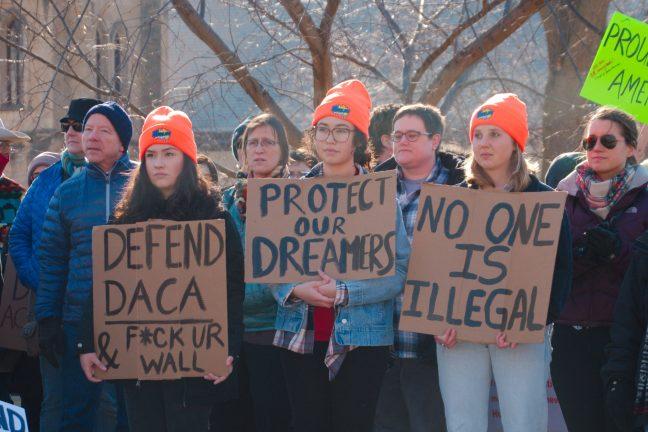Wisconsin dairy farmers are asking the U.S. Senate to amend an immigration bill that passed in the House of Representatives. The bill, called the Farm Workforce Modernization Act, would allow farmers who need laborers to hire temporary workers under H-2A visa status. Dairy farmers are excluded from the program.
This is a troubling reality for farm owners in the dairy industry, who are desperate for a solution to the labor shortage. The exclusion of this industry also bodes poorly for Wisconsin, where dairy production makes up the largest portion of the agricultural sector.
Perhaps a more fundamental issue, however, is the reliance on H-2A visas to secure immigrant laborers in an attempt to mitigate the labor crisis.
According to U.S. Citizenship and Immigration Services, H-2A visas are intended for immigrants seeking temporary or seasonal agriculture jobs in the United States. After three years in the United States, individuals must leave the country for three months uninterrupted before reapplying.
The temporary nature of H-2A visas also invites the potential for labor violations. According to a report from Farmworker Justice, this is typical for guest worker programs. For example, regulations for wages, housing and worker’s compensation lack the necessary specificity or enforcement to guarantee protections for immigrant workers.
The report also pointed out that employers are at a significant advantage because they understand the laws around H-2A visas and immigrant workers — who are unfamiliar with American laws — are not. Additionally, temporary laborers often lack the resources to advocate for better working conditions or pursue legal action if they believe their rights are being violated.
Overall, the Farm Workforce Modernization Act represents a surface-level solution to a much deeper issue. Immigration policy in the United States is headed in the wrong direction and this bill fails to make the systemic changes that are necessary to benefit immigrants in the long-term.
Under the Trump administration, 472 policy changes were enacted, most through presidential powers alone, according to a report from the Migration Policy Institute. These policies restricted the southern border and severely limited the accessibility of legal immigration.
Oct. 5, 2022, a federal judge ruled that DACA, the program that protects undocumented immigrants who were brought to the U.S. as children, is illegal. While current beneficiaries of the policy are allowed to renew their grants for now, no new applicants will be able to join.
While the Farm Workforce Modernization Act may benefit a small number of immigrants looking for temporary labor, it lacks the scope necessary to address the broader issues of immigration and could end up harming workers and the labor market in the long run.
A better solution would be to start enacting progressive immigration policies that make the path to permanent citizenship more accessible. Not only would this improve working conditions for immigrant workers, but it would help boost the American economy and establish a stronger, more effective workforce.
Ultimately, people deserve to feel secure in their futures and permanent citizenship is the only way to do this. Enacting narrowly focused laws that fail to consider the full horizon of immigration issues is not the answer.
Celia Hiorns (chiorns@badgerherald.com) is a sophomore studying journalism and political science.


